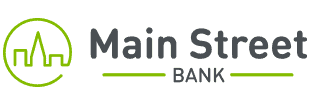Using Debt Reduction as an Effective Financial Strategy

Many Americans carry financial debt, and if you’re reading this, there is a good chance that you have some debt too. Common sources of debt are student loans, car loans, mortgages, and credit card debt. While loans and credit cards can be useful tools to help you achieve your goals, it’s important to pay those debts back, too. Paying down your debt is also an effective way to save because you end up paying more in interest the longer you have your loan. Decreasing your debt consistently puts you in the most secure financial position and reduces your stress.
How To Pay Down Your Debt
There are many ways to pay down debt, so you get to choose which method you like best. No matter what you choose, you can rest assured knowing that you have a plan to effectively tackle your dues. The first step to reducing your debt is to create a plan of attack. One of the most popular methods is “The Snowball Method”. You measure all your different debts and tackle them from the smallest to the largest. This method is highly effective if you are putting a consistent amount of money towards your goals. As you pay off each debt, you transition those payments to the next one in line and keep the ball rolling. This is a popular way to tackle your debt as the progress is swift and you feel accomplished as you check each item off your list.
Another good method is to pay off the loan with the highest interest rate first. This method is good because you end up paying much less for your loans when you prioritize the most expensive ones. This is a great method if there is a large difference in interest rates between your loans. You can prioritize the ones that cost you the most money and leave the less intense ones for later. The downside of this method is that if you are chipping away at a mountainous source of debt, it can feel like you are not moving very fast. Trust me, it might feel like you are not making much progress, but every dollar put towards paying down your debt is a dollar towards a better, more financially secure life.
Get Creative With Your Money
Paying down loans takes effort. For many people, it can feel like there isn’t enough money in the budget for your debts, and they get pushed off indefinitely. After all, there’s a good reason why that debt accumulated over those past years. As tough as it can feel at times, there are always ways to save and come up with money for this most-important pursuit. Try to cut back on extraneous spending and put those extra dollars towards debt reduction. Or if you have an excess of credit card debit, consider opening a new card with a lower interest rate and transferring your balance, if you have the means to do so. When you get creative with your money you will quickly find that there are many countless ways that it can work for you.
Make it a Priority
Regardless of how you decide to tackle your debt, the important thing is to make it a priority. Start small and develop a debt reduction habit with the plan of action that you know will work for you. It’s okay if you find it all a bit overwhelming; there’s no need to panic. Wealth Management Powered by Main Street Bank is an easily accessible service for you. There, you can get connected to financial advisors who know how to handle debt, savings, and more. They can work with you to figure out the best way to tackle your debt and free yourself financially. Click the link below to sign up for a free consultation with a financial advisor today.
What are you waiting for? Get connected to a financial advisor.
Registered Representatives offer securities through Securities America, Inc., Member FINRA /SIPC. Advisory services offered through Patriot Financial Group Insurance Agency, LLC in association with Wealth Management Powered by Main Street Bank. All are separate entities. There are no bank guarantees. Investments may lose value and are not bank deposits. Investments are not insured by any Federal Government Agency and are not FDIC insured.
| Not FDIC Insured | No Bank Guarantee | May Lose Value | Not a Bank Deposit | Not Insured by Any Federal Government Agency |


